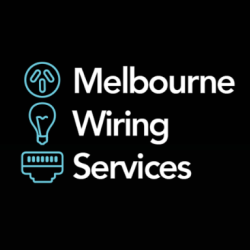5 Common Signs of Electrical Problems in Melbourne Homes
Ensuring the safety and security of your home is a paramount concern, and this includes promptly addressing any electrical issues. At Melbourne Wiring Services, we understand that early detection of electrical problems is not just a matter of convenience - it's a crucial step in preventing serious risks such as fires or other hazards. We're here to help you spot the warning signs early and tackle them head-on.
But don't worry; we're here to help you spot the warning signs early and tackle them head-on. We've seen everything from flickering lights to dodgy smells from your outlets. By recognising these signs early, we can prevent potential hazards and keep your home safe and sound.
So let's get started!
Recognising the Warning Signs
As a homeowner, your ability to identify the warning signs of common electrical problems is crucial for maintaining a safe environment. Here are a few signs that you need to be aware of and address promptly:-
Flickering or Dimming Lights
Flickering or dimming lights are among the first indicators of instability in your home’s electrical system. If you notice your lights flickering occasionally, it might be due to a large appliance drawing substantial power. But if the flickering is consistent or widespread throughout your home, it's crucial to seek a professional assessment promptly. This could signal loose wiring or issues with your mains, which pose a significant fire risk if left unchecked.
Circuit Breaker Problems
Your circuit breaker plays a crucial role in protecting your home by stopping the flow of electricity if a circuit overloads. If breakers frequently trip, it's a clear sign that your circuits are overloaded. This could indicate a more severe problem, like a short circuit requiring professional attention.
Discolored Outlets or Switches
Any sign of discolouration around your outlets or switches should be treated as a potential warning of an electrical fault. Discolouration often results from overheating, which occurs if wiring is loose or if there is an excessive demand on the circuit. Not only is this a fire risk, but it can also lead to further damage to your electrical system if not addressed promptly.
Unusual Smells or Sounds
An unusual smell or sound coming from an appliance, your fuse box, or any electrical panel is a definite cause for concern. Burning smells or a distinctive fishy odour can indicate melting insulation or a serious electrical fault. Similarly, buzzing or hissing noises suggest faulty wiring or a malfunctioning electrical component. It's crucial to turn off the power and contact a professional if you notice any of these signs.
Warm or Hot Outlets
If the outlet feels unusually warm or hot after using an appliance, it indicates an unsafe wiring condition. Overheating outlets quickly lead to electrical fires. It's advisable to unplug any cords and avoid using the outlet until an electrician has checked and cleared it.
Frequent Electrical Surges
Lightning strikes, damaged power lines, faulty appliances, or bad electrical wiring in the house can cause electrical surges. While an occasional surge is not unusual, frequent surges can damage your home's electrical components, significantly reducing life expectancy. If you experience frequent surges, the culprit is likely an electrical device connected to the home grid or the wiring itself.
Lights That Are Too Bright or Too Dim
If you notice that some lights in your home are significantly brighter while others are dimmer, it might indicate a problem with the main neutral connection. This issue should not be ignored, as it can lead to serious problems with your electrical system and potentially damage household appliances.
Tripping Power When Using Appliances
If using a particular appliance regularly causes your circuit breaker to trip, it could indicate that the appliance is faulty or that the circuit is not adequately designed to handle the appliance's power demand. This sign warrants further investigation by a professional to determine the cause and necessary adjustments.
Preventive Measures to Avoid Electrical Problems
Taking proactive steps to prevent electrical issues can save time and money and ensure the safety of your home or business. Regular inspections by a qualified electrician are crucial to identifying and addressing potential electrical issues before they escalate. We recommend having a professional review your electrical system at least once every two years. This routine check can help catch issues like outdated wiring, overloaded circuits, and aging infrastructure that might not meet current safety standards.
Another key preventive step is the installation of surge protectors, which protect your appliances from voltage spikes and fluctuations that can cause damage. Moreover, For homes with older electrical systems, it's wise to consider updating wiring and electrical panels to support modern appliances and electronics more effectively. Such upgrades can prevent the dangers associated with outdated systems and improve overall electrical efficiency.
Ensuring Electrical Safety with Melbourne Wiring Services,
We hope this guide has helped you recognise the signs of potential electrical issues. It's clear that being proactive and vigilant is key to maintaining a safe and efficient electrical system. By recognising the warning signs and taking prompt action to address these issues, you can safeguard your home and loved ones.
Contact us if you ever face an electrical issue or feel unequipped to handle it. At Melbourne Wiring Services, we're equipped to tackle any electrical challenges you might face, from minor repairs to major installations. We are always ready to assist you with expert advice and professional service.
Contact us today, and let us help you keep your home safe and functioning without a fuss!



